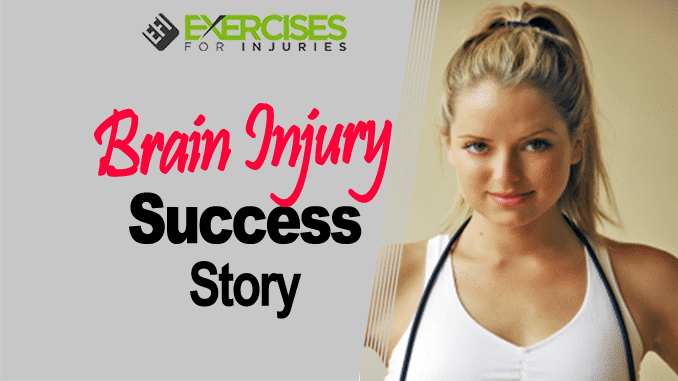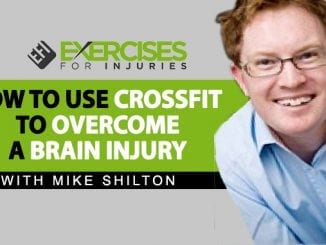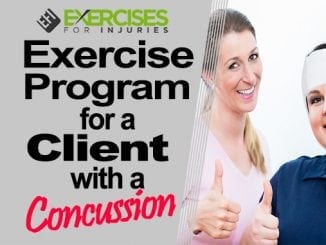
An acquired brain injury (ABI) is an injury to the brain that has not occurred before birth. This type of brain injury occurs after birth. Damage to the brain’s neurons alters their metabolism and function, resulting in physical integrity or neurological problems.
Two types of Brain Injury: Traumatic and Non-Traumatic.
A blow, bump, or jolt to the head, a head suddenly and violently hitting an object, or an object piercing the skull and entering brain tissue can result in Traumatic Brain Injury (TBI), which results in impaired brain function. The presence of any of the following signs indicates poor brain function:
- Reduce one’s level of awareness
- Memory loss for events that occurred before or after the incident (amnesia)
- Focal neurological impairments, such as muscular weakness, visual loss, and speech changes
- Disorientation, sluggishness of thought, or inability to concentrate are all examples of mental changes.
TBI symptoms may range from mild to severe, depending on the severity of the brain injury. In favorable circumstances, the patient may experience a momentary shift in awareness or mental state. A lengthy coma or even death may be the outcome of challenging situations.
In contrast, internal causes such as a lack of oxygen, exposure to harmful substances, tumor pressure, and so on affect the brain in non-traumatic brain injury cases.
TRAUMATIC BRAIN INJURY CAUSES |
NON-TRAUMATIC BRAIN INJURY CAUSES |
|
|
What are the symptoms of a brain injury?
The Glasgow Coma Scale is one of the first tests your doctor will do to determine the severity of your head injury (GCS). Wounds with a high GCS score are thought to be less severe. There are 15 questions on the GCS, and the goal is to gauge your mental health.
For your doctor, it is crucial to know the details of your accident. It’s common for people who’ve suffered a brain injury to forget the facts of the accident. Bring someone who observed the accident with you if you can. Your doctor will need to know whether or not you were unconscious and for how long.
Nerve function will be assessed, among other things, by measuring your muscular control and strength, eye movement, and sensory perception. Also, your doctor will evaluate you for trauma symptoms, such as bruising and swelling, to ensure that you are in good health. In addition, a neurological evaluation is quite probable for you.
Often imaging tests are performed to determine the extent of a head injury. Using a CT scan, your doctor may check for fractures, bleeding, clotting, brain swelling, and more. CT scans are often the first imaging test you’ll get since they’re quick and precise. A Magnetic Resonance Imaging (MRI) scan is another option. Doctors may gain insight into the workings of the brain in this way. An MRI scan is often scheduled only when the patient is stable.
How to treat a brain injury?
The kind and degree of a brain injury affect the treatment options available.
The only indication of a mild head injury is discomfort at the location of the damage. You may be prescribed acetaminophen (Tylenol) to ease your pain in certain situations.
Aspirin and ibuprofen (Advil) are both NSAIDs and should not be used by anybody suffering from a medical condition (Bayer). They may exacerbate any bleeding. To protect against the damage, they’ll apply a bandage. Your doctor may use sutures or staples to seal an open wound.
After a head injury, it is not true that you should avoid going to sleep. It would help if you were roused up every two hours to check for any new signs of infection. Injuries that seem mild should be monitored for worsening, even if they appear trivial. Any new or worsening symptoms need a trip back to the doctor.
A significant head injury may require hospitalization. Treatment at a hospital is based on your diagnosis.
Doctors may treat severe brain injuries in various ways, including Medication.
Medication
Doctors may treat severe brain injuries with antiseizure medications. Immediately after a traumatic brain injury, you are prone to seizures. Because of the excess fluid buildup in your brain, you may be prescribed diuretics. It will help lower the pressure and cause you to pee more. It may help eliminate some of the force. If your injury is particularly severe, you may be given drugs to put you into a coma.
If your blood vessels are damaged, this may be the appropriate treatment. When you are in a coma, your brain requires less oxygen and nutrients than it usually does.
Surgery
You may need emergency surgery to prevent your brain from worsening. Operate on you, for example, and you may call a doctor to do so
- heal a hematoma in your brain
- restore your skull
- let go of some of the tension in your head.
Rehabilitation
A severe brain injury often requires restoration to restore full brain function.
The kind of rehabilitation you receive will depend on the parts you lost due to your injury. People who have suffered brain injuries require assistance with mobility and speech.
So what’s the catch here?
In today’s world, it’s great to have a success story about brain damage.
It’s Jenna Phillips
“I awoke from a coma with brain injury, and I quickly realized that my head trauma event had saved my life. I was on the wrong track.
The day before, I fell 14 feet from my barn’s hayloft and crashed head-first on the pavement, knocking me out. I had no idea this would be the wake-up call I needed.”
It’s a terrific tale of how the year’s biggest party turned into her worst tragedy – but that night altered her life and sent her on a fitness goal.
Jenna Phillips tells you the following in our conversation:
- Her purpose is to overcome hurdles.
- What exactly is Mission Possible?
- How she became interested in fitness
- How the year’s biggest celebration turned into a nightmare
- What she tried to compensate for her lack of language, sense of direction, sense of time, short-term memory, and capacity to form sentences
- Her recovery procedure
- How her injury caused her to discover she had type 1 diabetes
- What she did when the physicians were ineffective in her recuperation
- How exercising benefited both her mind and body
- How she devised her exercise rehabilitation regimen to aid in her recovery from her injuries
- When it comes to healing, attitude is everything.
- The amount of time it took her to accomplish things on her own
- The significance of travel in the healing process
- Understand her purpose.
- Her advice to individuals dealing with a significant injury
At a convention, I met Jenna. As soon as she started talking, I realized that she was someone I needed to speak to further.
Check out Jenna Phillips and her Mission Possible.
If you have a story to tell or know someone who has overcome an injury, please email me or have them contact me. I’d love to hear from you.
Podcast: Play in new window | Download






